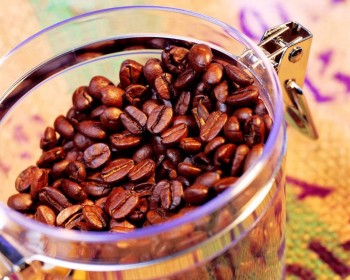What are the suggestions for the baking of single-product beans in Rwanda

Professional barista communication, please pay attention to coffee workshop (Weixin Official Accounts cafe_style)
Rwanda Bourbon Specialty
[Quality Rating: AA]
[Roasting Degree]: Recommended Roasting Degree City Roast or Full City Roast
[Level: Good]
[Particles]: ★★ Full
[Acidity]: ★★★ Slightly acidic
[Balance]: ★★★ Stability
[Flavor]: Soft, fragrant, with sweet fruit and wild grass aroma.
[Coffee producing area]: Rwanda Butare region in southwest Rwanda
[Planting altitude]: 1,200--1,800 meters
[Raw Bean Variety]: Bourbon Variety
[Raw bean treatment]: Water washing purification method
Since the 1920s, Arabica coffee grown in Rwanda has been known worldwide for its unique fruity sweetness and rich grassy aroma. In recent years, the Rwandan government has taken active measures to vigorously promote coffee production, establish coffee production cooperatives in various places, and provide technical guidance and financial support to farmers, so that coffee production has developed greatly.
Rwanda is known as "the country of thousands of hills". It has many mountains and plateaus throughout the country. Most of the areas have tropical plateau climate and tropical grassland climate, which is mild and cool. There are approximately 33,000 hectares of coffee plantations and 500,000 people engaged in coffee farming. With its high altitude and fertile volcanic soil, the country's fertile soil and climate are conducive to plant growth, and coffee trees seem to be driven or forced to grow upwards, or to grow too fast to produce the best coffee beans. Rwanda, the beautiful country of a thousand hills, has a long and rich culture of growing highland coffee, mainly high-quality Arabica coffee. Rwanda is the only country in the world that can fully enjoy the harmony between soil, elevation and climate. In this unique growing environment, Rwanda's high-quality coffee has a distinctive taste and aroma.
Bourbon coffee grown in Rwanda is one of the original varieties of Arabica coffee. In the 2008 annual professional competition of top coffee held by SCAA, Rwanda Aromec's best washed bourbon defeated Jamaica Blue Mountain No.1 and Sumatra Mantenin G1 Special Selection at the same time and won the 2008 COE (Cup of Excellence) Award.
Recommended baking method: deep baking
★★: Good
Rwandan coffee market:
Rwandan coffee, in its washed arabica bean form, is of absolute quality. As far as Africa is concerned, its coffee industry stands out because the country thrives mainly on producing the best possible coffee beans. Rwandan coffee is gaining increasing popularity on the international market.
The mission of the Rwandan Coffee Association is to manage and supervise the operation of the Rwandan coffee industry from production to marketing. The recently revised mission focuses on policy formulation and implementation, with greater emphasis on efforts to improve professionalism and marketing in the coffee industry. Since its founding, the Rwandan Coffee Association has been instrumental in promoting Rwandan coffee culture and influence.
But anyway, the soft, rich flavor of the country's coffee is excellent.
Since the 1920s, Arabica coffee grown in Rwanda has been known worldwide for its distinctive fruity sweetness and intense grassy aroma. In recent years, the Rwandan government has taken active measures to vigorously promote coffee production, establish coffee production cooperatives in various places, and provide technical guidance and financial support to farmers, so that coffee production has developed greatly.
Coffee production in Rwanda:
Rwanda has approximately 33,000 hectares of coffee plantations and 500,000 people engaged in coffee farming. With its high altitude and fertile volcanic soil, the country's fertile soil and climate are conducive to plant growth, and coffee trees seem to be driven or forced to grow upwards, or to grow too fast to produce the best coffee beans. Rwanda, the beautiful country of a thousand hills, has a long and rich culture of growing highland coffee, mainly high-quality Arabica coffee. Rwanda is the only country in the world that can fully enjoy the harmony between soil, elevation and climate. In this unique growing environment, Rwanda's high-quality coffee has a distinctive taste and aroma. Bourbon coffee grown in Rwanda is one of the original varieties of Arabica coffee.
Features of Rwandan coffee:
Flavor: Soft, aromatic, full grain
The taste of Rwandan coffee is described as "grassy aroma" with tropical climate characteristics. In addition to the fruity sweetness of this coffee, it can also taste refreshing, clear and fresh. Bourbon coffee grown in Rwanda is marvellous for its fruity sweetness, its rich, full-bodied aroma, and its long aftertaste. With a delicious, citrus sweetness and a deep chocolate color, Rwanda bourbon is known as "the coffee that captures and concentrates the essence of Africa in the cup."
Rwandan coffee is attracting attention for its high-quality washed Arabica beans and is gaining increasing popularity in international markets. Rwanda plans to export 3000 tonnes of coffee this year, further boosting production to meet increasing demand, according to marketing and promotion officer of the Rwanda Coffee Association, Karuretwa. Starbucks, the world's largest coffee retailer, has partnered with the Rwandan government to import Rwandan coffee, just as a coffee-colored dove flies from a coffee cup against the words "Cup of Hope" on the Rwandan coffee label. Indeed, coffee holds the hopes of the Rwandan people. They hope to increase coffee exports to drive the country's economic development, but also hope that Hutu and Tutsi, the two major tribes that once hated each other, will work together to build a better tomorrow by planting coffee and eliminating hatred.
Hotel Rwanda is a 2004 British, South African, Canadian and Italian film. Based on a real-life story, the film follows Paul Rusesabagina, a Rwandan Hutu hotel manager who manages to save 1268 Tutsi refugees from a racial vendetta.
Important Notice :
前街咖啡 FrontStreet Coffee has moved to new addredd:
FrontStreet Coffee Address: 315,Donghua East Road,GuangZhou
Tel:020 38364473
- Prev

The producing area of single bean in Rwanda introduces how to brew single bean in Rwanda.
Professional barista exchanges please follow the coffee workshop (Wechat official account cafe_style) Rwanda is known as the country of a thousand hills, the whole territory is mountainous and plateau, most of the area has a tropical plateau climate and savanna climate, mild and cool. There are about 33000 hectares of coffee plantations and 500000 people are engaged in the coffee industry. Have good natural conditions of high altitude and fertile volcanic soil, as is the case in this country.
- Next

How is the planting of single bean in Rwanda? introduction to the award-winning situation of single bean in Rwanda
Professional baristas please pay attention to the coffee workshop (Wechat official account cafe_style) Rwanda (Rwanda) coffee with its high-quality washed Arabica coffee beans, it is becoming more and more famous in the international market. According to Karuritwa, marketing and promotion officer of the Rwandan Coffee Association, Rwanda plans to export 3000 tons of coffee this year.
Related
- Does Rose Summer choose Blue, Green or Red? Detailed explanation of Rose Summer Coffee plots and Classification in Panamanian Jade Manor
- What is the difference between the origin, producing area, processing plant, cooperative and manor of coffee beans?
- How fine does the espresso powder fit? how to grind the espresso?
- Sca coffee roasting degree color card coffee roasting degree 8 roasting color values what do you mean?
- The practice of lattes: how to make lattes at home
- Introduction to Indonesian Fine Coffee beans-- Java Coffee producing area of Indonesian Arabica Coffee
- How much will the flavor of light and medium roasted rose summer be expressed? What baking level is rose summer suitable for?
- Introduction to the characteristics of washing, sun-drying or wet-planing coffee commonly used in Mantenin, Indonesia
- Price characteristics of Arabica Coffee Bean Starbucks introduction to Manning Coffee Bean Taste producing area Variety Manor
- What is the authentic Yega flavor? What are the flavor characteristics of the really excellent Yejasuffi coffee beans?

